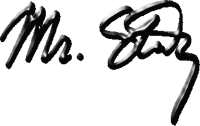|
Cairo, Egypt
1799
We have made an amazing discovery! While digging military entrenchments at the Rosetta branch of the Nile, an officer of Napoleon's French Army unearthed a large stone upon which three separate inscriptions are written. We call it the "Rosetta Stone." I believe it may be the key to deciphering the ancient Egyptian hieroglyphs. The first inscription, written at the top of the stone, is in hieroglyphic writing. The second inscription, in the middle of the stone, is in some other type of strange script (perhaps another ancient Egyptian system). The final inscription is in Greek! The Greek can be read easily, for it is
a language that is well known to many of us: it is a decree written by
the priests of Egypt on March 27, 196 BCE to celebrate and honor the new
king Ptolemaios. Of great interest is the observation of someone here that
whenever the name Ptolemaios occurs in the Greek part of the Rosetta Stone,
the corresponding part of the Egyptian hieroglyphics has Your humble servant,
|
